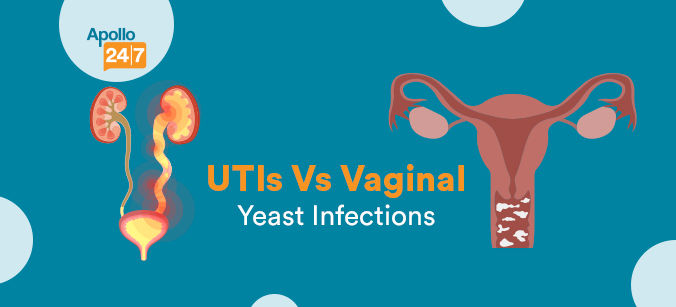Women's Wellness
Eating Disorders: Why Women Are More Affected
6 min read
By Apollo 24/7, Published on - 29 June 2021, Updated on - 22 May 2024
Share this article
1
0 like

Healthy eating in the context of sustainable weight management is important to achieve individual health goals. Some people who are more conscious about this aspect adopt various dietary fads to achieve those goals. Yet others take it to the extreme and indulge in unhealthy eating behaviours such as excessive eating or self-starvation. Such behaviours are identified as an eating disorder, which is actually a mental health issue that can affect a person’s physical and emotional wellbeing. If not diagnosed or treated, eating disorders can cause severe damage to the digestive system, heart, bones, teeth, and other vital organs.
Types of eating disorders
Eating disorders are seen in around 5% of the population and usually develop during adolescence and young adulthood. Though eating disorders can affect any gender, it is more prevalent among women, and the common ones include:
- Anorexia nervosa: This eating disorder is characterized by an obsessive desire to lose weight by either refusing to eat enough food or exercising vigorously. People suffering from anorexia nervosa often visualise themselves as obese, even when they are severely underweight. They often restrict their food and calorie intake to the point of self-starvation.
- Bulimia nervosa: People suffering from bulimia nervosa indulge in binge eating or eat large amounts of food at a time. This is followed by forceful vomiting, excessive exercising or the use of laxatives or diuretics to prevent weight gain.
- Binge eating disorder (BED): People with this disorder experience a loss of control over their eating habits. They often indulge in eating large amounts of food in a short period until they start feeling uncomfortably full. Later, they experience regret, shame and guilt for eating all that food.
- Other specified feeding or eating disorder (OSFED): OSFED is an umbrella term used for people who experience symptoms of different types of eating disorders simultaneously.
- Avoidant restrictive food intake disorder (ARFID): ARFID is the other name for extremely picky eating, where the person avoids or limits the consumption of food. This disorder is not associated with the fear of gaining weight but can result in nutritional deficiencies.
- Pica: When people indulge in eating non-consumable items such as dirt, paper, soap, hair, chalk, etc., it is termed pica. This eating disorder is more common in children aged between 1 and 6 years. Pica can result in various health problems including iron deficiency anaemia, poisoning, and constipation.
Symptoms of eating disorders
The symptoms of eating disorders vary with the type. Spotting eating disorders may not be easy as it could be assumed as dieting. Also, a person with an eating disorder could be hesitant to share their eating troubles. However, some general symptoms that such individuals may exhibit are:
- Frequent trips to the bathroom after eating
- Throwing away food or hiding it
- Eating alone or secretly
- Chewing food longer than usual.
Some symptoms of eating disorders based on their type include:
Anorexia nervosa
- Restricting diet
- Thin stature
- Urge to reduce weight continuously
- Pain and tingling sensation in the arms and legs
- Fear of gaining weight
- Low self-esteem
Bulimia
- Eating very large amounts of food in a short time
- Forceful self-induced vomiting resulting in callus formation on the back of the hand and knuckles
- Excessive use of laxatives or diuretics
- Dental problems such as erosion of enamel (outer layer of teeth), cavities, discolouration and sensitivity
- Vigorous exercising to lose weight
- Excessive use of mouthwash, mints or mouth fresheners
- Extreme fear of putting on weight
- Mood swings
Binge eating disorder
- Eating without feeling hungry
- Eating a lot of food, very quickly
- Hiding food and eating secretly
- Hoarding food
- Feeling guilty, ashamed, disgusted or depressed after binge eating.
Causes of eating disorders
The exact cause of eating disorders is not known but some factors that may be involved in developing an eating disorder include:
- Genetic reasons: Research shows that some people may have certain genes that increase their susceptibility to eating disorders. People who have a family member with an eating disorder, drug abuse or depression are at increased risk of developing the condition.
- Societal pressure: People with excess pressure to achieve unrealistic body standards and health goals are at risk of developing eating disorders.
- Peer pressure: Teasing, bullying or body shaming because of weight can affect the mental health of young individuals, resulting in the development of eating disorders.
- Abuse: Physical or sexual abuse can also lead to the development of eating disorders. Abused or neglected kids may develop pica.
- Psychological health: Low self-esteem, difficulty in relationships and impulsive behaviour can also make people vulnerable to develop eating disorders.
- Mental illnesses: Diseases such as obsessive-compulsive disorder (OCD) and schizophrenia can also result in the development of eating disorders.
Why are eating disorders more commonly seen in women?
Some studies indicate that women tend to be more influenced by negative perceptions of physical appearance, as well as their susceptibility to social pressures. Objectification and sexualisation of women and gender stereotypes are also lead to the development of mental health disorders in women, including eating disorders. Though limited research has been done on this, studies have also indicated that other than cultural differences, other factors could also contribute to the development of eating disorders in women. One such study published in Oxford’s journal Cerebral Cortex included 32 healthy participants (16 men and 16 women) with no history of eating disorders.
The experiment: The participants were made to wear a virtual reality headset that gave them an illusion of their body getting slim or obese. During the study, the participant’s brain was getting monitored using magnetic resonance imaging (MRI).
Results of the study: The results indicated that when the female participants were showed their obese self, there was more activity in two different parts of their brain, the parietal lobe (associated with body perception) and the anterior cingulate cortex (associated with emotions such as fear and anger), as compared to their male counterparts.
Conclusion: The scientists concluded that brain activity could be the reason for dissatisfaction with a particular body type in women. However, larger-scale studies are required to further understand the role of DNA (genes) and brain activity in the development of eating disorders in women.
How are eating disorders treated?
The treatment for each person is customized according to their diagnosis. The treatment plan includes:
- Medications: Doctors may prescribe anti-anxiety or antidepressant drugs to manage anxiety and other mental health issues in patients with an eating disorder.
- Nutritional counselling: A professional dietician can help improve eating habits by making nutritious meal plans for people suffering from eating disorders. They also provide some tips for grocery shopping, meal planning, and ways of preparing food.
- Psychotherapy: People with eating disorders may benefit from cognitive-behavioural therapy (CBT), which is a type of psychotherapy that helps in understanding and changing the underlying problem and thinking pattern that may have resulted in unwanted feelings and behaviour. CBT can be done in a group setting or individually.
- Family therapy: This therapy helps the parents or caretakers understand the problem and teaches them ways to help the affected person develop healthier eating habits.
Conclusion
Eating disorders can be seen in anyone irrespective of their weight, body shape or gender and can bear severe consequences. However, a combination of medications, diet counselling and psychotherapy together can help in addressing the physical, mental and behavioural aspects of eating disorders. If you notice signs of an eating disorder in a family member or friend, talk to them about their concerns and advise them to consult a mental health specialist if required.
Leave Comment
Recommended for you

Women's Wellness
Having Irregular Periods? These Can Be the Problems!
One of the most common forms of menstrual problems is irregular periods. While more often than not, experiencing irregular periods on occasion is not a huge cause for concern, it's still a good idea to see a gynaecologist to know if there is a deeper underlying cause. This blog shares the major reasons behind irregular periods.

Women's Wellness
UTIs Vs Vaginal Yeast Infection: What's The Difference and How to Prevent them?
UTIs and vaginal yeast infections are major health concerns that are affecting overall health condition of women. Know the difference between UTI and vaginal yeast infection and get diagnosed and treated for the same by an expert gynecologist near you.

Women's Wellness
Can Pregnancy and Childbirth Lead to Depression in Women?
Depression during pregnancy is known as prenatal depression but if the depression starts after the baby is born, it is known as postpartum depression.
Subscribe
Sign up for our free Health Library Daily Newsletter
Get doctor-approved health tips, news, and more.
Recommended for you

Women's Wellness
Having Irregular Periods? These Can Be the Problems!
One of the most common forms of menstrual problems is irregular periods. While more often than not, experiencing irregular periods on occasion is not a huge cause for concern, it's still a good idea to see a gynaecologist to know if there is a deeper underlying cause. This blog shares the major reasons behind irregular periods.

Women's Wellness
UTIs Vs Vaginal Yeast Infection: What's The Difference and How to Prevent them?
UTIs and vaginal yeast infections are major health concerns that are affecting overall health condition of women. Know the difference between UTI and vaginal yeast infection and get diagnosed and treated for the same by an expert gynecologist near you.

Women's Wellness
Can Pregnancy and Childbirth Lead to Depression in Women?
Depression during pregnancy is known as prenatal depression but if the depression starts after the baby is born, it is known as postpartum depression.